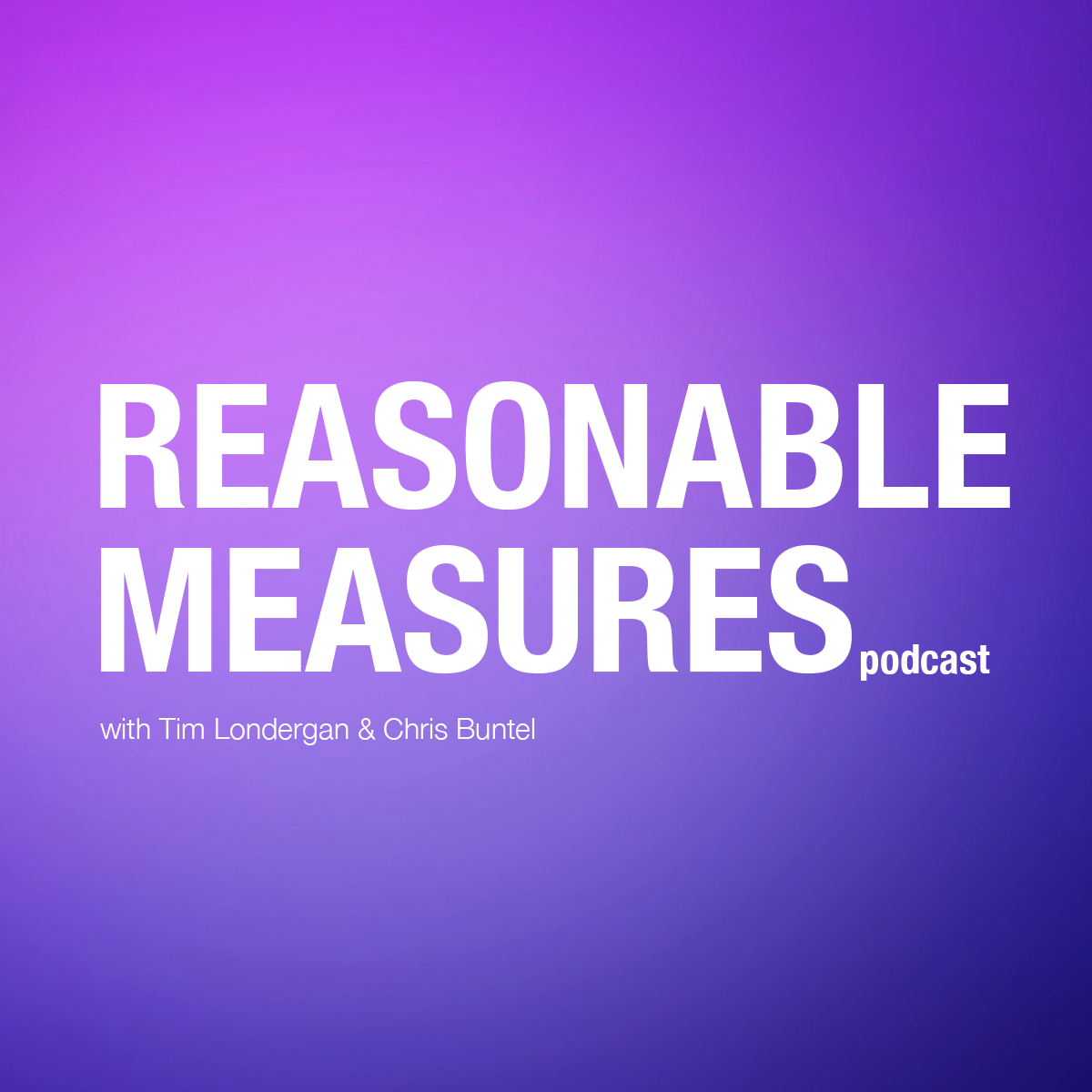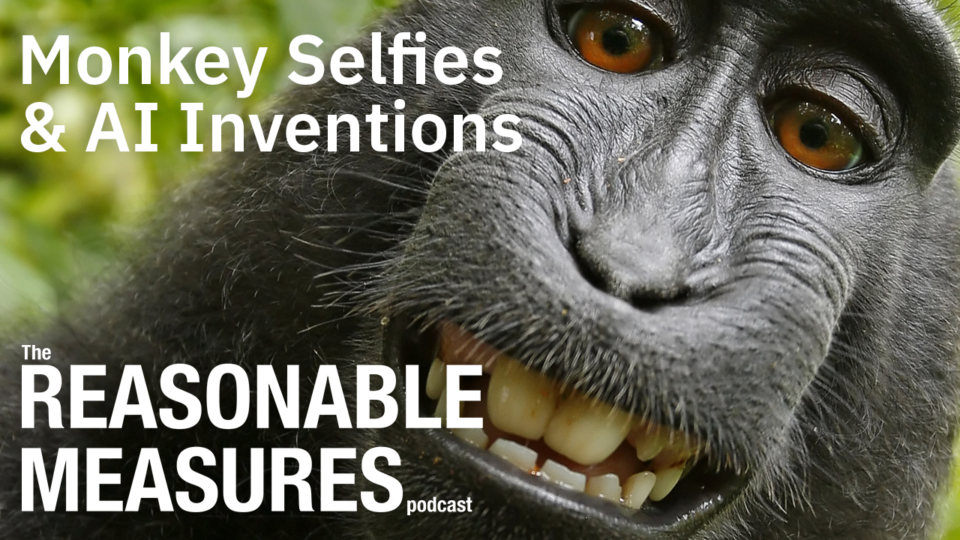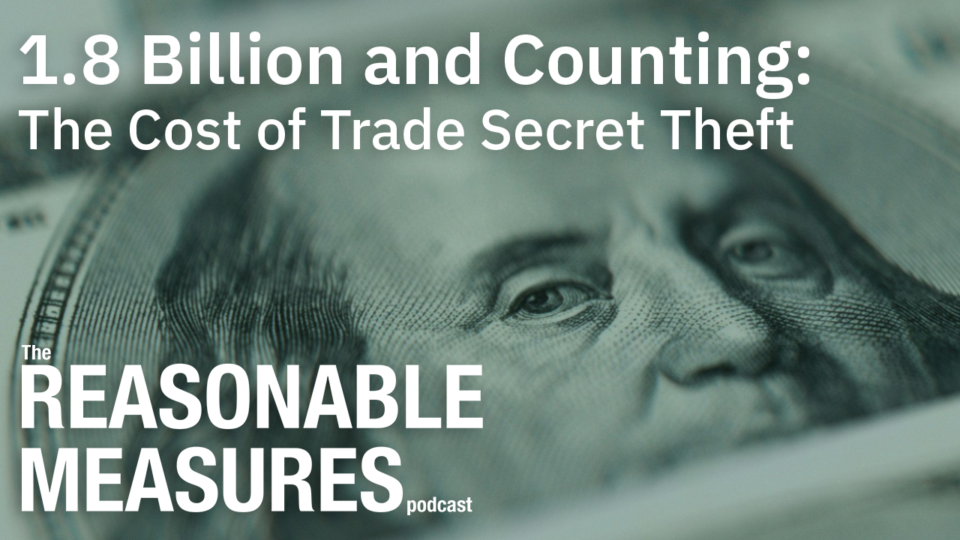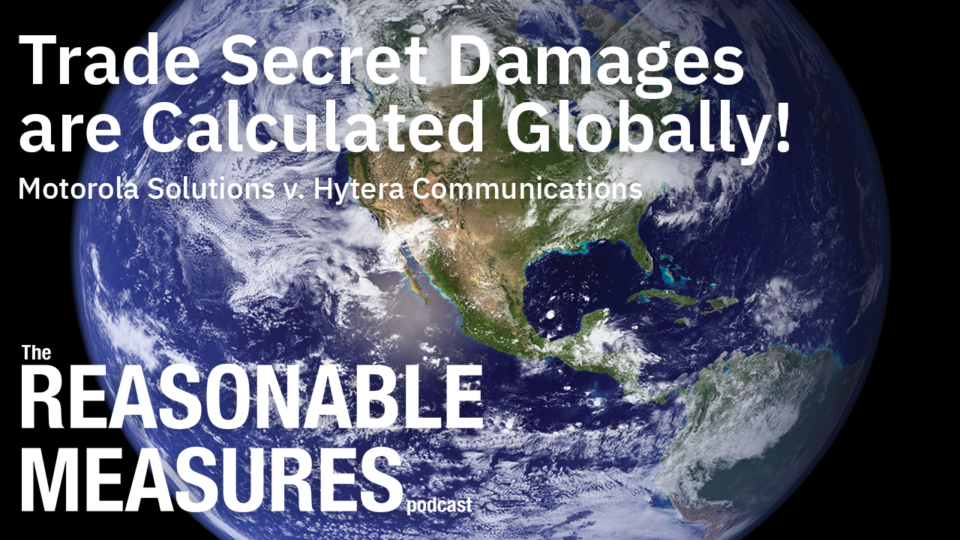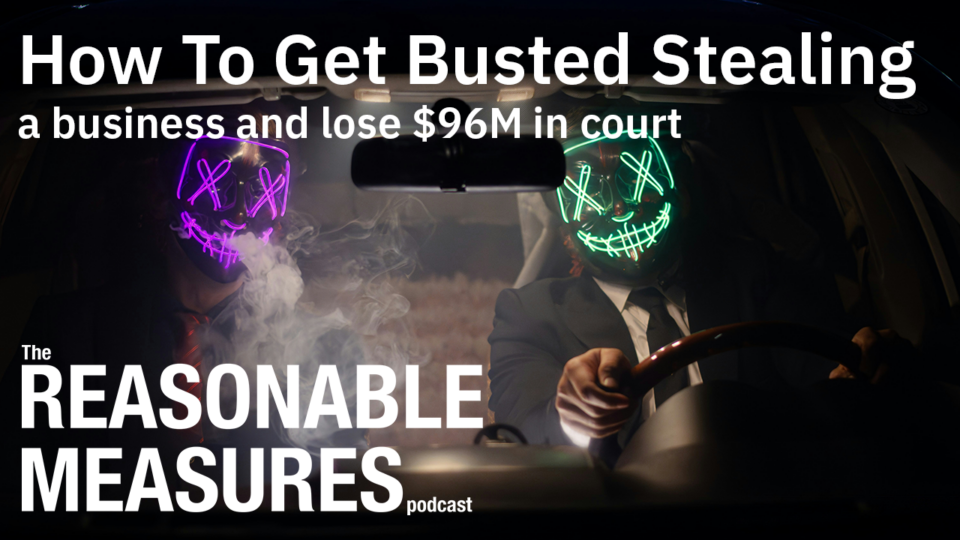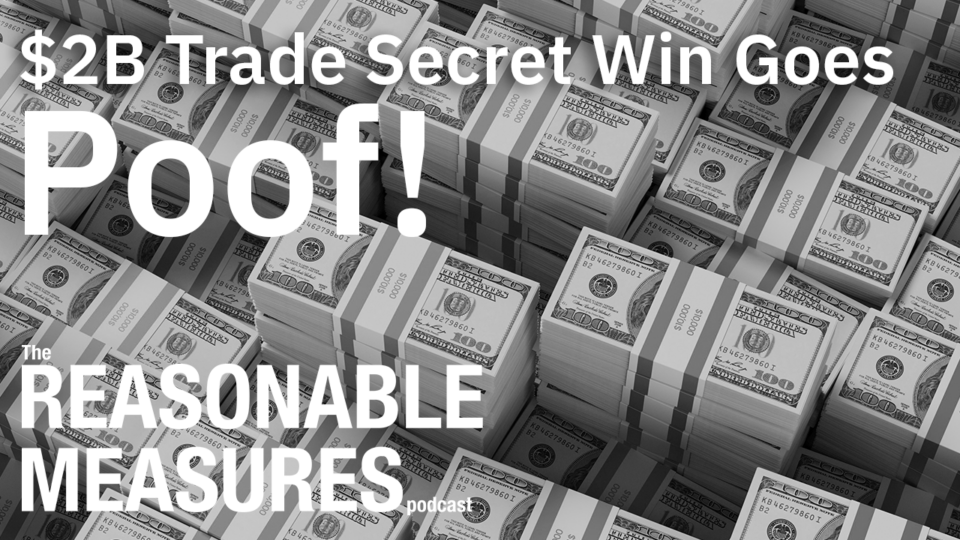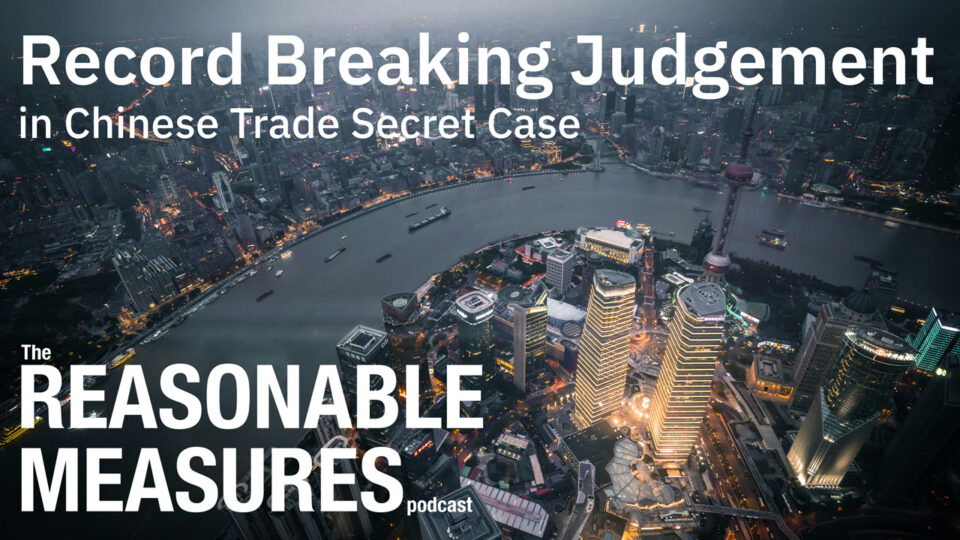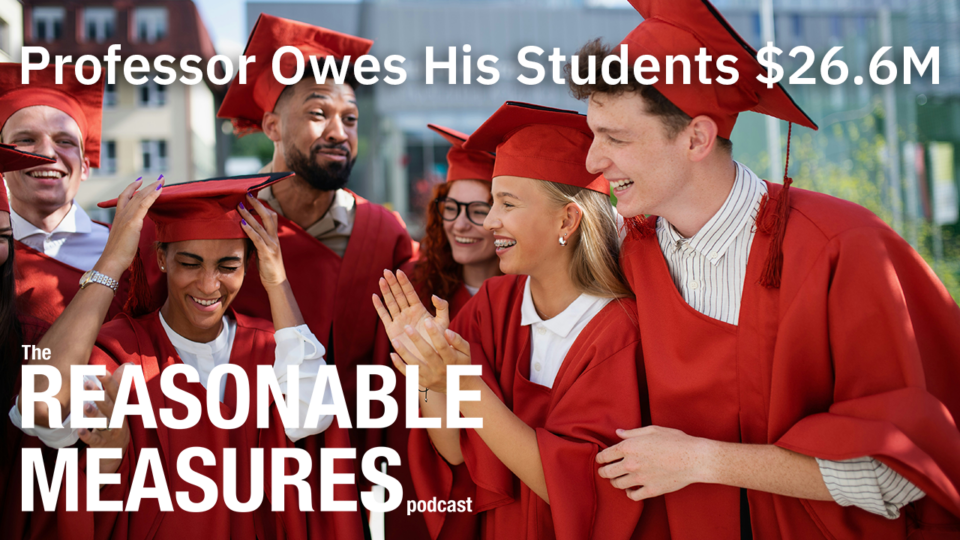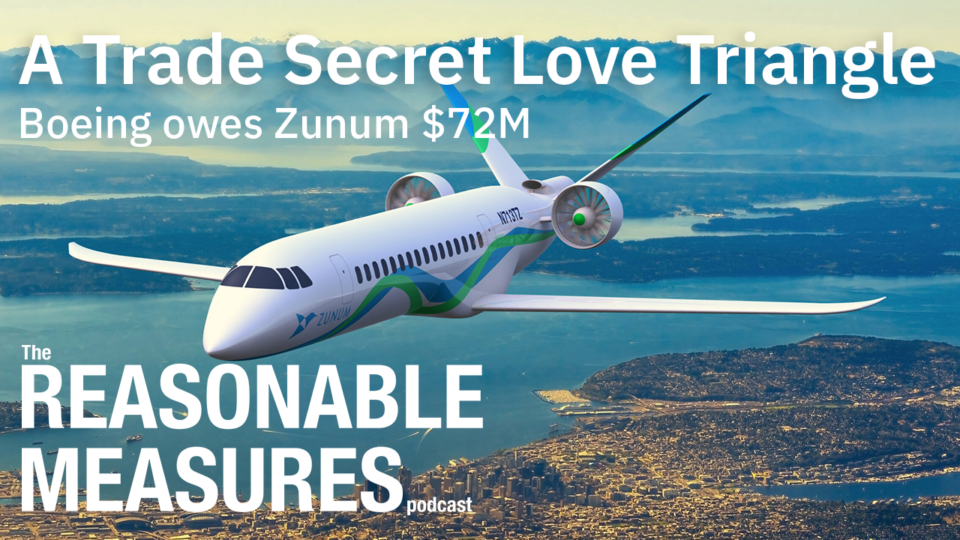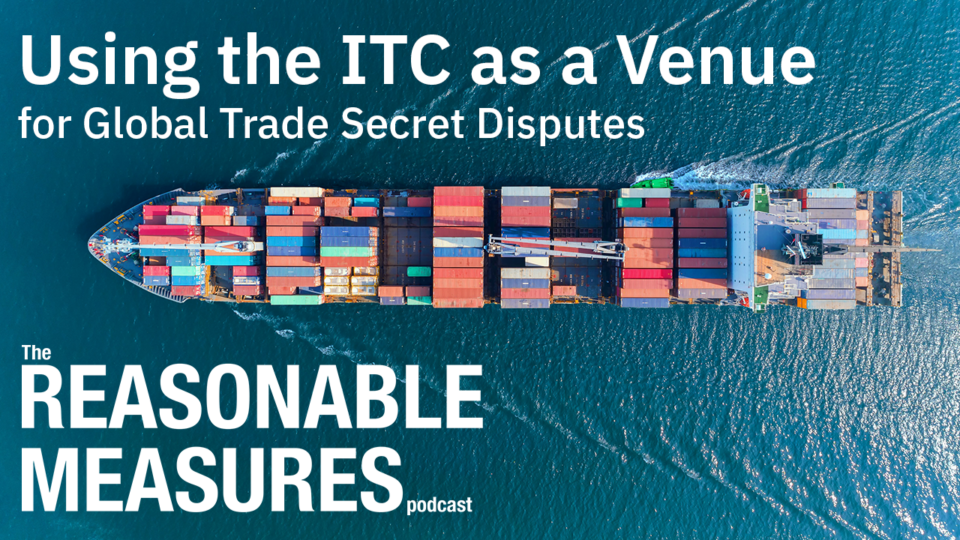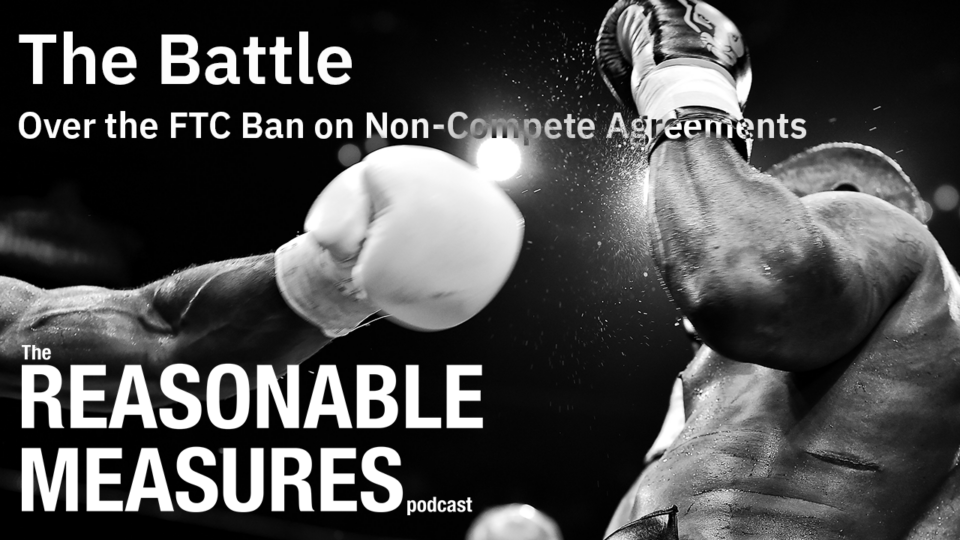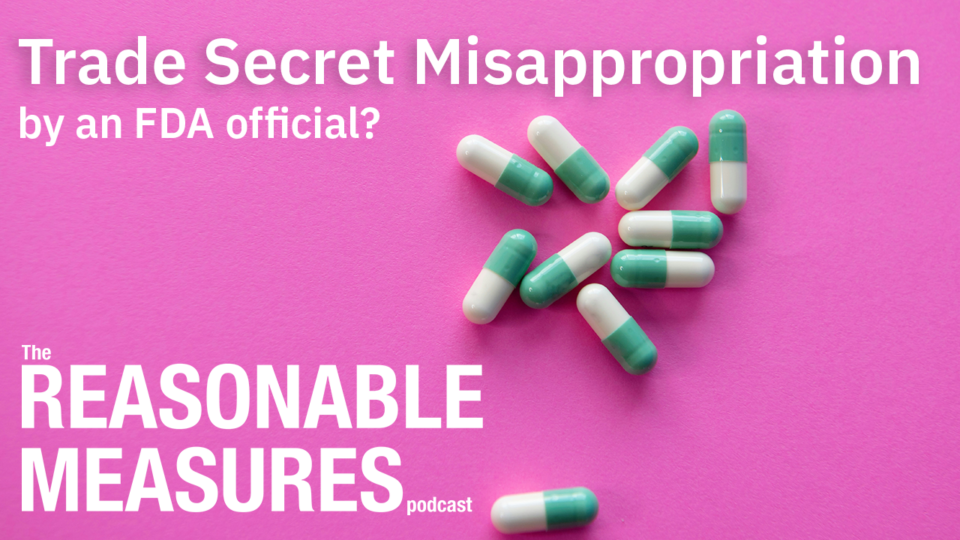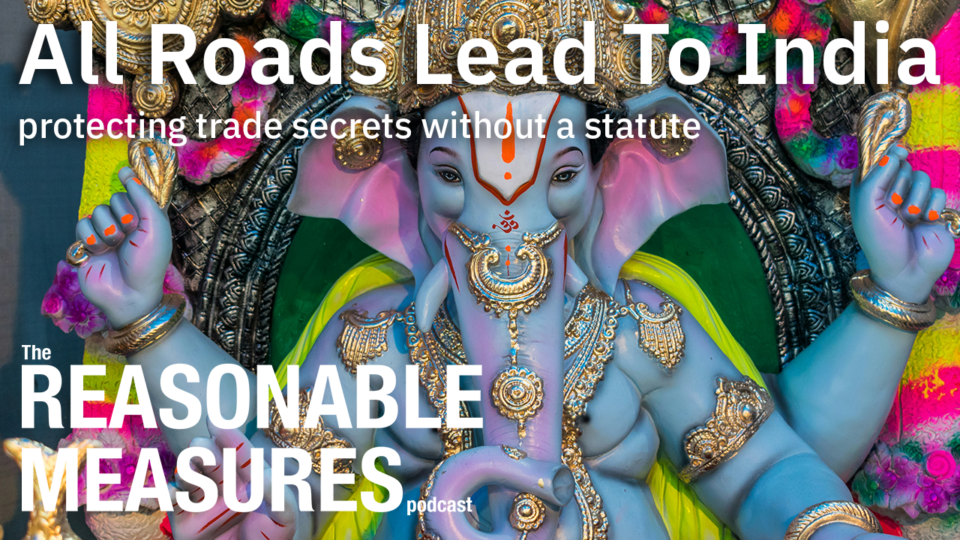In this episode of the Reasonable Measures podcast, Tim and Chris discuss three notable trade secret cases from Latvia, China, and the United States. They explore the implications of whistleblower retaliation, the intersection of trade secrets and criminal law, and the complexities of ongoing litigation between IQVIA and Viva Systems. The conversation highlights the evolving landscape of trade secret protection and the legal challenges faced by companies and individuals.
Takeaways:
- A Latvian case highlights the risks of whistleblowing and LinkedIn posts.
- Courts may be sympathetic to employees in trade secret disputes.
- In China, trade secrets can lead to criminal charges and jail time.
- The IQVIA vs. Viva Systems case exemplifies messy legal battles.
- Specificity in identifying trade secrets is increasingly required by courts.
- Trade secrets are not just civil matters; they can involve criminal law.
- The discussion reflects on the global nature of trade secret issues.
- The importance of understanding trade secret laws in different jurisdictions.
Transcript:
Tim (00:12.238)
All right, Chris, we’re back episode 12, Reasonable Measures podcast. It’s good to be back. Yeah, it seems like I just saw you. Well, we’re going to try something a little different with episode 12. Instead of going deep into one case, we’re going to kind of breeze through three cases. And it’s almost like this week in trade secret.
lawsuits. Yeah, that’s right. So what the lightning round began? Yeah, it’s like starting to poke around for cases like we do. It’s like, man, that’s starting to be like enough activity that maybe we just do, you know, you know, this week in trade secrets, you know. And so three cases here today, which is always fun when you see the international news and you’ve got stuff from, you know, from from from across the globe. And so let’s start in Latvia.
in Riga. I’ll tell you what caught my attention on this case. Do know this guy named Tim Myers? Is that name right about? don’t. Okay, you gotta look up Tim Myers. Check out his Instagram. It’s Tim Knockie, N-A-K-I. And so he started…
He started this campaign on Instagram. for every, let me see if I get 10 cents. So for every new follower I get, I’ll do an online gambling, one hand of blackjack, 10 cents for every new follower, right? He 15,000 followers at the time. He’s up to like 1.3 million followers and it’s just become this like cult craziness. And so like every day, and these are huge amounts of money that he’s betting on a single hand of blackjack. And so,
He uses these, he doesn’t use this company real time SIA that’s in this case, but he uses one of these live casino operators. And so it’s this virtual thing. If you haven’t seen it, you gotta go check it out, because it’s kind of a trip. But it’s a live person sitting in a studio somewhere in Riga that’s dealing a hand of blackjack. it’s just incredible.
Tim (02:24.98)
Shout out to him and go check it out. And it turns into trade secret. And then there’s a trade secret. Secrets are everywhere. So so this gentleman, Ivan Ivanos, a former IT project manager, left the company. And again, that company is real time SIA operating under the on air entertainment brand.
And so he was seeking damages. Sorry, the company was seeking damages of 10,000 euro after he made a post on LinkedIn about leaving the company. So what happened? Well, you said he left the company. I think he was encouraged. OK. Encouraged to leave one word. It wasn’t totally voluntary. And if you read between the lines, he was basically looking for his next job, next gig and posted about
Here are the types of things that I did for the last two years working at this company. Yeah, like hundreds of people do on LinkedIn. It’s it’s common. You see it all the time. But the company was obviously upset with him. Apparently he was a whistleblower against the company for some labor compensation issues. Yes, he was. He informed the government about and of course that.
probably didn’t make him their favorite employee. So he at least alleges that this is retaliation for his whistleblowing activity. But his employment ended for whatever reason, looking for a new job, posts on LinkedIn, and then gets slapped with a trade secret lawsuit, which is pretty severe reaction to a LinkedIn post. Exactly.
So and he was basically saying, you know, you know, pretty innocuous types of stuff. wasn’t like he was posting, you know, know, algorithms or like process information. And so basically the courts said, sorry. Well, not only sorry, but they said all the information that you posted, the company had already disclosed. There were corporate press releases or announcements.
Tim (04:34.956)
Yeah, maybe even the company’s own LinkedIn. Who knows? like he didn’t disclose anything special first off. But then it was all out there already and there was really no harm in.
him describing what he did to look for a new new job. Yeah, you wonder why, you know, sometimes the courts may be more sympathetic to, you know, to the little guy when stuff like this happens. It just seems like a big waste of time. Well, it’s a waste of time. And also, I think the employer didn’t have a better bullet to fire. Like this is probably the only thing they had. Totally. They took their best shot. And, you know, maybe they hoped he would just
immediately cave and throw some money at them or something. But when it actually went to court, it was a very weak attempt at trying and the court kind of just laughed it off.
It’s a big nothing burger. That’s right. Well, you know, we don’t see a lot of Latvian cases. I don’t remember the first one. This may be the first. So that was pretty cool. So Latvia down. Yeah. secrets are everywhere. Even Latvia. Let’s go to China. And, you know, so so a couple of things. There was a good analysis and I’m blanking on the firm that did it.
in big IP consulting firm. Anyway, they looked through all the China litigation data, trade secret litigation data. And this is probably a five or six year old report now. But I remember one of the key things was that you’re not in America where it’s pretty much all transparent, right? Every last little bit of information about the case, you know, it’s at your fingertips. This is, it’s very different in China, right? And so,
Tim (06:26.672)
This case kind of reading through that reminded me of that, right? Which is like, we’re talking here today about company A and company B, right? And Mr. Guo. And so he was identified simply by his surname.
But the setup for this one is again, it’s almost like comedy. So someone eventually goes into the server room and goes, hey, there’s an extra computer. is this does this come from? And so they do a little bit of investigation. It’s got a bunch of data on it. And by the way, it’s also being shipped up into the cloud to Mr. Guo’s personal Baidu account. That’s right. That’s awesome. So that’s going be
It’s a one to explain away. that laptop was there for months. It was probably around half a year or a quarter of a year that the laptop was just sitting there in the server room collecting information and putting it on by do hysterical. It’s amazing. So so this was, I’d say, probably a fairly straightforward case to prove out. Mr. Guo actually had a financial interest in this company, the company B that he was sharing the data with.
He actually was in some of their promotional materials. And so I think Mr. Guo is sort of this classic, you know, covid case of like, I’m just going to work at two companies at the same time. Right. Well, not only that, but he was founder and CEO of the first of first companies. He wasn’t in these cases. It’s usually some like wine level low employee who grabs the source code and and tries to parlay it into a better deal. This guy was.
The founder, if anyone should be responsible, it should be him. And the first company, Company A, actually had great policy and great procedures around electronic security. So they they took things seriously and he just ignored it or thought, hey, I’m a founder. I can do anything I want. And even after he was accused of violating these procedures.
Tim (08:34.924)
He made it sound like he was helping the company. I’m doing a backup of the backup and I’m helping the company keep their assets safe. And he really tried to spin it into he’s the good guy. And the reality is he wasn’t. He was just doing what he wanted. So I was I guess I am not enough up on.
China law to know about the criminal law. so Mr. Guo is now in jail. is two years behind bars. He two year sentence as well as a fine. Yeah. And I mean, the fine is not a lot of money. It’s 14000 US. Yeah. But they said the trade secrets were worth 323000 US or 323 million. So it.
It’s a substantial amount of money, but I think the bigger penalty is the jail term. Yeah. And if no one likes to pay a fine, obviously. Right. But no one wants to go to jail for stealing trade secrets. Right. And I think that’s a kind of a good reminder. A lot of people we talk to, you know, obviously, you know, coming out of the patent space, you know, I think in a weird way, you’re almost trained to.
when you’re infringing somebody’s patents, you if there’s a decision path where you’re saying, okay, I need to license that patent or I’m going to probably be infringing it happens all the time every day. And they say, okay, well, I’m just going to make the decision to roll the dice, infringe it, move forward. If there’s a mess, we’ll clean it up later. Right. Well, and it’s almost like a cost of doing business for some people. And some people obviously take trade secrets.
with a very noble attitude. But a lot of them, like you said, either just say, maybe I won’t get sued. So I’ll take that chance or I’ll deal with the damages when it happens. And at that point, it’s just it’s almost like a tax or cost. where I was going with that was that I think that a lot of people still don’t don’t fully grasp the idea that trade secrets are.
Tim (10:47.694)
or criminal law as well. Totally. Right? And so what I’d say is like the average scientist that thinks about stealing in the context of patent infringement, right?
That’s the company’s problem, right? That’s not my problem. It’s the lawyer and the company are figure that out if it becomes a problem. But anyway, yeah, it is a matter of criminal law. Right. And so anyway, I was I was a little surprised to see see the same in China as well. patents are not as scary because the only thing a patent judge or jury can do is move money around or tell you to stop doing the bad thing you’re doing. Right.
Which they’re not great, but they’re not personal. That’s right. A trade secret judge or jury can send you to the big house for years. And we’ve seen that in the US as well, where people do get sent to prison for stealing trade secrets. that’s pretty scary. Yeah. I don’t want to go to prison. No, thank you. No, thanks. No, thank you. So let’s move from China to the US.
And a very, very messy case IQ via and Viva systems. And I would say, boy, this is like the gift that keeps giving. These guys have been at it for years. Not clear. It’s going to end anytime soon. There’s a good piece in in Law 360 last week. And I’ll put some links in the show where we’ve drawn some of this data from.
And so this IQ via case is is a is a review of the summary judgment arguments that were made last week. And and yes, it is a very complex case, very, very messy. You want to say a of words on this case? Well, it’s not only messy and complicated, but it’s not their first rodeo either. So these two companies have been going at it for years. There’s been trademark suits. There’s
Tim (12:52.27)
anti-competitive suits. It’s just a mess and they’re really slugging it out. There’s also been a lot of sanctions being issued for deleting and destroying evidence. Details. There are details, but again, I looked at this and said, wow, this is just an incredibly messy situation fundamentally around data. So these companies are
providing data and software for life sciences companies, trying to get therapeutics or new drugs approved. So there’s a lot of clinical data that they have licensed programs for where people can get access to these collections of data, but you can only use it in certain ways. And this case, they’re alleging that the other party used, kind of went beyond.
the scope of what their license allowed them to do. That’s right. Yeah. And I think the salient point for me.
Again not dissimilar than the point we continue to make on at least every other episode is that and I’ll just read this line Viva argued that IQ via had not identified its alleged misappropriate trade secrets with enough particularity as Required by not only one but two orders from the court and so we saw it was a lot of us every time almost every podcast. Yeah, this issue comes up. Yep
You have to be more specific, increasingly specific every day with what your actual trade secrets are that the other person has stolen. And it used to be very vague and fuzzy and hand waving was okay. But it seems like that bar is being raised with every new case that we see come down.
Tim (14:42.296)
You know, strikes me that we need to go do a search for the word particularity and see, you know, what it looks like year over year. You know, I’m sure it’s on a steep upward slope. I’m guessing it is becoming the the word of the decade. Yeah. Word of the year, at least. So and this one is still ongoing. So it’s not finished yet. So we’ll keep an eye on it. And if anything interesting happens, we’ll maybe have another podcast.
I think what we should do is we’ll maybe try to make it a monthly thing where we just look and see, is there enough stuff in this week to breeze through a few cases here. So this has been fun. Thanks, Chris. See you on number 13. Awesome. Thanks, Tim. Later.
Good. All right.
